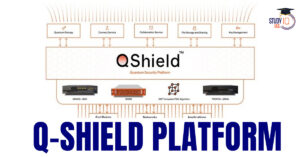Table of Contents
Context: Securities and Exchange Board of India (SEBI) has decided to phase out the buyback of shares of listed companies through the exchange route.
About Share Buyback
- When a listed company buys its own shares from the existing shareholders, it is known as a share buyback, which is also called share repurchase.
- The process reduces the number of outstanding shares in the open market over a period which can lead to better valuation and earnings per share (EPS).
- Currently, a company can buy back its shares from shareholders on a proportionate basis through a tender offer, or from the open market via a book-building process, or from the odd-lot holders.
- The maximum limit of any buyback is 25 per cent or less of the aggregate of paid-up capital and free reserves of a company.
Amendments to SEBI (Buy-back of Securities) Regulations, 2018
- Buyback done through stock exchanges route to be phased out in a gradual manner.
- Increasing minimum utilisation of the amount earmarked for buyback through stock exchange route from existing 50 per cent to 75 per cent.
- Creation of a separate window on stock exchanges for undertaking buyback till the time buyback through stock exchange is permitted.
- Buyback through tender offer route. Timeline for completion of buybacks through tender offers has been reduced by 18 days.
- Significance: To make the buyback process more robust, efficient, transparent and shareholder-friendly.

About Stock Exchange Route
- A company can buy back shares only on the stock exchanges having nationwide trading terminals. The buyback of shares is made only through the order-matching mechanism.
- In this method, the promoters, or persons in control of a company are not allowed to participate.
- Example: Paytm recently decided to opt for the open market route through the stock exchanges method for share buyback, which is to be completed within a maximum period of 6 months.
- While TCS, which came out with share buybacks recently, used the tender route, Infosys opted for the stock exchange method for its recent buyback
Reason for Phasing Out Stock Exchange Route
- As per the recommendations of the Keki Mistry-headed committee, under the stock exchange route, there is a possibility of one shareholder’s entire trade getting matched with the purchase order placed by the company.
- It could deprive other shareholders of availing the benefit of buyback.
- It is against the principle of equitable treatment, which forms the basis of all corporate actions.
- As recommended by the Keki Mistry committee, SEBI will phase out buyback through the stock exchange route with effect from April 1, 2025.
Reason for Opting Tender Route
- A tender offer means an offer by a company to buy back its own shares or other specified securities through a letter of offer from the holders of the shares or other specified securities of the company.
- It is done on a proportionate basis as per the buyback ratio.
- Additional shares tendered over and above the prescribed buyback ratio get accepted if there are any unaccepted shares.
- It is a fixed-price buyback offer.
Advantages of Tender Offer
- Tender offers require a reservation for small shareholders. In this way it democratises the process and creates a fair and equitable platform.
- It is considered more equitable, transparent, and fair.
- It will give all the shareholders an opportunity to participate.
Securities and Exchange Board of India (SEBI)
- It is a statutory body established on April 12, 1992 in accordance with the provisions of the Securities and Exchange Board of India Act, 1992.
Aim:
- To protect the interests of investors in securities and to promote the development of, and regulate the securities market.
- It is the regulator of the securities and commodity market in India owned by the Government of India.


 Accredited Social Health Activists (ASHA...
Accredited Social Health Activists (ASHA...
 World’s 1st Unique Q-Shield Platform a...
World’s 1st Unique Q-Shield Platform a...
 IB ACIO Recruitment Notification 2025 Ex...
IB ACIO Recruitment Notification 2025 Ex...





















